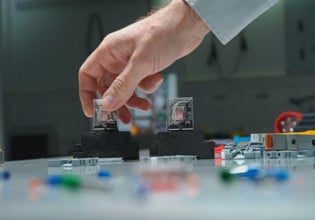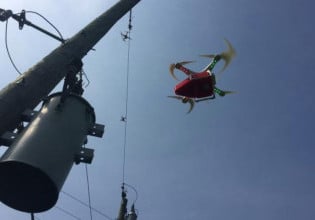Samsung Connects Tesla to the Internet of Things
Samsung’s partnership with Tesla and Hyundai will connect smart home technology to EVs and the Internet of Things, allowing for greater control of electric vehicle charging and the use of renewable energy. The company unveiled the news at CES 2024.
Samsung has teamed up with Tesla and Hyundai to connect its smart home technology to electric vehicles (EVs) and the Internet of Things (IoT). The collaboration allows greater interaction with and control of things like EV charging.
Managing a Hyundai electric vehicle with SmartThings. Image used courtesy of Samsung
The partnership will improve home connectivity and allow the use of devices like Tesla’s Powerwall and Solar Inverter through Samsung’s SmartThings IoT platform on a mobile phone. Samsung revealed the collaboration at CES 2024.
Benefits of Incorporating Renewable Energy
Energy connectivity is essential for using renewable energy and electric vehicles. Samsung has been advancing pure energy connectivity, particularly in renewable energy integration and electric transportation.
Integrating renewable energy sources in the energy ecosystem contributes to the broader renewable energy sector by demonstrating the feasibility and advantages of adopting renewable energy in large-scale operations. Here’s how:
- Environmental sustainability: Integrating renewable energy sources such as solar power reduces greenhouse gas emissions and lessens its ecological footprint.
- Cost savings: Utilizing renewable energy saves money by reducing dependence on traditional power sources and mitigating the impact of energy price fluctuations.
Samsung’s advancements in energy connectivity are helping to reduce carbon emissions, enhance energy efficiency, and drive the energy transition.
Electric Vehicle Charging Infrastructure
Samsung is developing electric vehicle (EV) charging infrastructure to make electric transportation more accessible and efficient. Creating advanced charging solutions and integrating innovative grid technology makes it easier to charge EVs quickly and effectively.
The Samsung platform will connect with residential charging infrastructure such as Tesla’s Wall Connector and Hyundai’s ChargePoint, enabling monitoring and control of charging.
Hyundai’s home EV charger. Image used courtesy of Hyundai
These developments support the integration of renewable sources into the grid and encourage electric vehicle adoption, which means reduced emissions and a more sustainable transportation sector overall.
Efforts in Utilizing Renewable Energy
About 80% of power in the U.S. comes from fossil fuels, and residential HVAC systems produce 441 million greenhouse gas emissions annually, making homes less eco-friendly. Samsung has been instrumental in developing innovative grid technologies for efficiently distributing and utilizing renewable energy sources such as solar and wind power.
Samsung’s partnerships with Tesla and Hyundai will make integrating renewable energy technologies, such as solar power and electric vehicles, easier.








